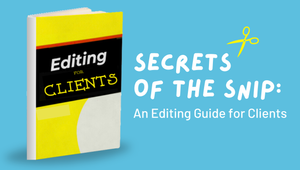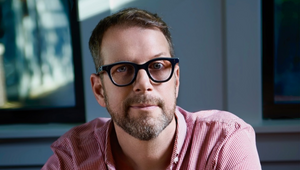
The Directors: Ben Hoffman

With a body of work that spans from pure aesthetics to human interest and lifestyle, Ben’s reel reflects his wide interests and his refusal to decide who he wants to be when he grows up. He learned production from the inside out, starting at the bottom of the call sheet and working his way through nearly every discipline, finally falling in love with the camera department. Spending his formative years schlepping cameras through caves, desserts and mountains while also working on painstakingly orchestrated tabletop and fx jobs has given Ben a huge toolbox with which to approach his projects. Most nights you’ll find him at home getting better at guitar and worse at parenting.
Name: Ben Hoffman
Location: Dallas
Repped by: Camp Lucky
LBB> What elements of a script sets one apart from the other and what sort of scripts get you excited to shoot them?
Ben> I love a script with a surprise. At the core, we are storytelling. The best stories pose a question, and surprise you with an answer. When the script is clear on the ‘punchline’ of the spot then conversations about aesthetics and pace and every element we deal with in production have a grounded place to work from.
LBB> How do you approach creating a treatment for a spot?
Ben> Treatments are such a unique discipline. They can be hard to get started. I’ve found that the first thing I need to do is sit down with a notebook and write about the project as if it were a journal entry. I sort of ramble about all of my ideas until I find a point of view and a tone of voice to write from. Then I can focus on aesthetics and mechanics. Creating drawings and manipulating images to be as specific as possible about my personal vision.
LBB> If the script is for a brand that you're not familiar with/ don’t have a big affinity with or a market you're new to, how important is it for you to do research and understand that strategic and contextual side of the ad? If it’s important to you, how do you do it?
Ben> I ask questions. The agency and client know their brand. They know their customers and I am not afraid to let them know what I don’t know. This industry is so collaborative, and that teamwork starts with the creative deck and the first call. In the marketing world you’re always dealing with new products and ideas and it’s very unlikely that you won’t always have more to learn about any given brand or product.
LBB> For you, what is the most important working relationship for a director to have with another person in making an ad? And why?
Ben> Every project leans on different departments and creatives differently, but unless I have a great producer it’s hard to really put my energy where it’s most needed. A great line producer affects every facet of a job and gives me the creative space to focus on the creative needs of my client. I lean on everyone on my team but it starts with my producer.
LBB> What type of work are you most passionate about - is there a particular genre or subject matter or style you are most drawn to?
Ben> That’s so hard for me to answer. Right now it’s 103deg out so anything tabletop sounds good! To be honest, I grew up simultaneously in the tabletop and lifestyle worlds and I love the place those worlds intersect. Lifestyle jobs with a food element or vice versa; that gets me excited.
LBB> What misconception about you or your work do you most often encounter and why is it wrong?
Ben> I worked on some very technical jobs for quite a while and some people know me as the guy who does motion control stuff and solves FX problems. I was a theater and music student before the film industry got ahold of me. It was really a happy accident that I learned I had some technical facility and was able to learn so much about the process of filming through my time as a motion control operator and camera assistant. My dream is to make emotional spots regardless of the techniques involved.
LBB> Have you ever worked with a cost consultant and if so how have your experiences been?
Ben> I’ve never had to rethink my approach because of cost consultants. Overall I think they are a tool that clients can choose to use if they want. My only frustration is with the amount of time the back and forth can take but that’s true of most of preproduction.
LBB> What’s the craziest problem you’ve come across in the course of a production – and how did you solve it?
Ben> Production is problem solving so the list is endless. I was shooting a product shot of a golf club and having trouble because the shaft was flexible and would shake as the club rotated. We were able to index the turntable to control the amount of rotation and shoot the shot stop motion. It looked perfect. Since then I’ve used that technique for all sorts of product shots.
LBB> How do you strike the balance between being open/collaborative with the agency and brand client while also protecting the idea?
Ben> I think you have to try to be honest about your reasoning and you have to read the room. I love the collaborative nature of production and I feel like the more everyone feels that I have listened to them, the more they will listen to me when I need to take charge. What I learned from working with great directors as a crew guy is that culture matters. The culture of your set helps to set the tone of your authority to manage the creative but also where the collaborative space is.
LBB> How do you feel the pandemic is going to influence the way you work into the longer term? Have you picked up new habits that you feel will stick around for a long time?
Ben> Well, I have to brush my hair for creative calls now. My experience with remote clients before the pandemic was not very good. It always seemed to invite a brutal approval process that could never really get smoothed out. I’ve been surprised that since the pandemic that system seems to be working great! I think people have gotten used to really understanding how to be remotely accountable. I think that this opens lots of possibilities for a different model when it comes to how we shoot.
LBB> Your work is now presented in so many different formats - to what extent do you keep each in mind while you're working (and, equally, to what degree is it possible to do so)?
Ben> It’s a huge challenge. Not only do you have to frame multiple shots at once depending on how many aspect ratios you are trying to satisfy, but you are also making color decisions for multiple broadcast formats and devices. You have to pick and calibrate a monitor to trust and include the framing options in the approval conversations throughout the day. Protocol is always important in production and these decisions need to be woven into the shoot day procedures so the hive mind can carry the day!
LBB> What’s your relationship with new technology and, if at all, how do you incorporate future-facing tech into your work (e.g. virtual production, interactive storytelling, AI/data-driven visuals etc)?
Ben> I’m always excited about what’s next. LED wall virtual production, VR, AR… I’m fascinated by all of it. Right now I’m most interested in LED void wall production with motion control… I think there is so much possibility with those technologies and where they intersect. Being able to do repeatable moves, scaled moves, rotate pieces of the world… I really want to play with the possibilities.
LBB> Which pieces of work do you feel really show off what you do best – and why?
Ben> I loved doing the Kate Weiser piece. She was a delight, and her story was truly compelling. I really got to make decisions based first on storytelling and put on the design hat after the fact. We had a tiny crew for a limited time and that really forced us to be creative with our approach.
The Mary Kay spot is a great example of a client who knows their brand, knows production and is open to design ideas. The pre-production was great, and we were able to solve some big problems (gold liquid metal on flowers!) because of their collaborative culture. I think it came out beautifully.
Agencies with big national brands have such a history with their narrative. I included the Burger King spot as an example of working within an existing aesthetic. I was really happy with the way my team took the BK world and built on it. This is also an example of long-distance approval…always an interesting challenge with a product that wilts under the lights!
The Kettle Pizza spot is a great example of the script leading the way. The VO had such a great attitude, it really informed all of the design decisions and gave an energy to the whole project. I absolutely love being able to shoot with so many different styles within the same world: we had stop motion pizza builds, time lapse pizza baking, high speed fire, motion control match moves…this was a kitchen sink job. My favorite.















